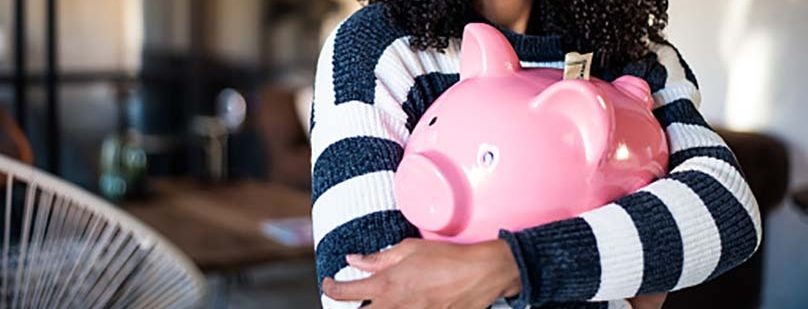
An emergency fund is a contingency reserve you set aside to be prepared for unexpected expenses. First and foremost, the emergency fund is intended to prevent you from having to overdraw your credit card that will further burden you with high interest rates.
The idea behind it: If an emergency occurs, you will have your living expenses covered. Such an emergency can be a natural disaster that requires immediate repairs, COVID-related unemployment, or simply a late paycheck.
How Much Is an Emergency Fund?
The amount of your emergency money depends on your usual living expenses. Basically, an emergency fund is recommended to cover your obligatory expenses for three to six months.
However, since you never know exactly how long a lean period will last, our recommendation is to provide for at least half a year. You should also plan for a longer timeframe of up to one year if you are self-employed or the single earner in your home.
You should plan enough money for:
- basic items like food and clothing
- medical treatment
- rent and utility expenses
- insurances
- essential repairs
- anything else indispensable to you
What exactly counts as other essential expenses depends on your personal priorities. For some, it may be the daily visit to a restaurant or a streaming-service subscription to others. To set a realistic goal for yourself, look at your spendings over the last six months and mark everything you could not live without, even in times of financial emergencies. As a rule, the more generous you are in calculating your emergency savings, the better off you will be in case of an emergency.
How to Build a Contingency Fund?
The basic requirement for building an emergency fund, as for any financial planning, is budgeting.
Whether you have been saving for some time or are just starting out, you should take a few months and monitor your monthly spending. Divide your living expenses into essential and discretionary expenses and see how much you have leftover at the end of the month. Think carefully about which of these expenditures significantly affect your standard of living and which could be saved.
It is not possible to build up a contingency reserve overnight. You may already have free assets that are not invested or cash at home that you could bundle together. In addition, you should commit to a sum that you will add to the emergency fund each month. Often, it helps to note a fixed date by which you want to have your financial safety net ready. Then you can compensate for possible shortages with unexpected cash inflows such as bonuses, gifts, or income tax refunds in other months.
Where to Keep Your Emergency Savings
Once you have built up your emergency fund, the question is what to do with all the money. Do you put it all in a savings account, in cash bundles under your bed, or can you invest the money profitably?
Safety First
The highest priority should be the security of your savings. This means that storing it in cash is out of the question, as it is not completely safe from theft or natural disasters even in a safe at home. Investing in high-risk stocks or chit funds is also not particularly safe by nature.
Withdrawable at Any Time
Furthermore, it should be possible to withdraw the money at any time without long processing and without penalties for premature withdrawal. In case of an emergency, you might not have the time or mental capacity to work through dozens of forms before getting to your savings. According to that, assets such as gold or diamonds are not suitable for emergency savings.
Possible Options for Your Emergency Fund
Probably the easiest and safest option is to deposit money in a savings account. You can withdraw your money at any time without any fees and there is nearly no risk.
However, with less than one percent interest and a predicted inflation rate of over two percent according to a recent statistic, the prospects of making a fortune out of your emergency fund are not that bright either.
To compensate for the inflation rate at least, you may want to invest the money in short-term fixed deposits. In that case, you should have part of the fund in cash or in a savings account to bridge the time until payment. In addition, there are various hybrid forms between the investment options. One example is a savings account with a sweep-in facility or liquid mutual funds which can be found especially at online banks.
Building an Emergency Fund is Important
To gain financial health, it is not only important to pay your liabilities, but also to have some emergency money. Such a safety net will also help you when you have troubles with financial stress and anxiety. If you are not able to build up an emergency fund, an emergency loan might be another option for you.
This article is for educational purposes only and is not intended to provide financial, tax or legal advice. You should consult a professional for specific advice. Best Egg is not responsible for the information contained in third-party sites cited or hyperlinked in this article. Best Egg is not responsible for, and does not provide or endorse third party products, services or other third-party content.


